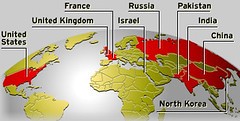If you want to shake up people's definition of ethics, go no further than the Internet.
Some of the same folks who easily chastise Rep. Mark Foley e-mails and private messages, laughed as they discovered Augusten Burroughs frequently amused himself by placing fake personal ads, and smirked when Jude Law's character pretends to be Julia Roberts and sucks in Clive Owen (Closer), are now defending married men and women seeking extramarital affairs on Craig's List personal ads.
The controversial practice, which has been around for some time, has been brought to center stage after after Michael Crook, a 28-year-old Liverpool, N.Y., man posed as 19-year-old Melissa and coaxed personal information from Kevin Murphy, who answered a personal advertisement on Craig's List. Crook then shared the information about the extramatarial affair with Murphy's wife, bosses, co-workers, several of his company's corporate accounts, and on his Website, which is dedicated to exposing Internet infidelity.
According to Abigail Goldman's story in the Las Vegas Sun, ethics experts say the stunt is immoral. Legal experts say it encroaches upon the gray territory of online liberties. Internet rights experts say it raises questions about privacy in cyberspace.
Does it? While two wrongs might not make a right, the question of the First Amendment still hangs over the entire argument. We cannot censor people from sharing any portion of a conversation, online or otherwise, if they choose to publish it. Can we?
Sure, some might argue that Crook and similar publishers are defrauding these men, but aren't they themselves attempting to defraud single women as available, only offering up their marital status when it suits them (to say nothing of what they are doing to their spouses)? Are people so naive to believe that personal ad exchanges are honest, despite years and years of articles that point out they are generally rife with fraud as those who post and respond frequently shave 10 years, 20 pounds, change jobs, and even their own names along the way? Where is the outrage in this seemingly accepted practice?
Ergo, there is only one answer here. If we are talking about ethics, they are all wrong. But if we are talking about stupidity, then those seeking online affairs retain all the honors. Maybe not today nor even tomorrow, but someone somewhere has stored all that personal informational shared over the Internet, innocently or not, possibly with the receiving party totally unaware (given that traces of pictures and e-mails remain on hard drives long after they are 'erased' and Google archives Website pages so they can be viewed long after you've taken them down).
As I've posted before, there is no such thing as a private conversation. So unless you would be proud to see what you say or do on the cover of the Wall Street Journal (Crook, I might point out, is proud of what he is doing), don't say or do it. It's about that simple. This holds to be especially true on the Internet because the information you put out there is much more permanent than anyone ever imagined, and the risk of it resurfacing is far greater than you ever considered.
Some of the same folks who easily chastise Rep. Mark Foley e-mails and private messages, laughed as they discovered Augusten Burroughs frequently amused himself by placing fake personal ads, and smirked when Jude Law's character pretends to be Julia Roberts and sucks in Clive Owen (Closer), are now defending married men and women seeking extramarital affairs on Craig's List personal ads.
The controversial practice, which has been around for some time, has been brought to center stage after after Michael Crook, a 28-year-old Liverpool, N.Y., man posed as 19-year-old Melissa and coaxed personal information from Kevin Murphy, who answered a personal advertisement on Craig's List. Crook then shared the information about the extramatarial affair with Murphy's wife, bosses, co-workers, several of his company's corporate accounts, and on his Website, which is dedicated to exposing Internet infidelity.
According to Abigail Goldman's story in the Las Vegas Sun, ethics experts say the stunt is immoral. Legal experts say it encroaches upon the gray territory of online liberties. Internet rights experts say it raises questions about privacy in cyberspace.
Does it? While two wrongs might not make a right, the question of the First Amendment still hangs over the entire argument. We cannot censor people from sharing any portion of a conversation, online or otherwise, if they choose to publish it. Can we?
Sure, some might argue that Crook and similar publishers are defrauding these men, but aren't they themselves attempting to defraud single women as available, only offering up their marital status when it suits them (to say nothing of what they are doing to their spouses)? Are people so naive to believe that personal ad exchanges are honest, despite years and years of articles that point out they are generally rife with fraud as those who post and respond frequently shave 10 years, 20 pounds, change jobs, and even their own names along the way? Where is the outrage in this seemingly accepted practice?
Ergo, there is only one answer here. If we are talking about ethics, they are all wrong. But if we are talking about stupidity, then those seeking online affairs retain all the honors. Maybe not today nor even tomorrow, but someone somewhere has stored all that personal informational shared over the Internet, innocently or not, possibly with the receiving party totally unaware (given that traces of pictures and e-mails remain on hard drives long after they are 'erased' and Google archives Website pages so they can be viewed long after you've taken them down).
As I've posted before, there is no such thing as a private conversation. So unless you would be proud to see what you say or do on the cover of the Wall Street Journal (Crook, I might point out, is proud of what he is doing), don't say or do it. It's about that simple. This holds to be especially true on the Internet because the information you put out there is much more permanent than anyone ever imagined, and the risk of it resurfacing is far greater than you ever considered.


















